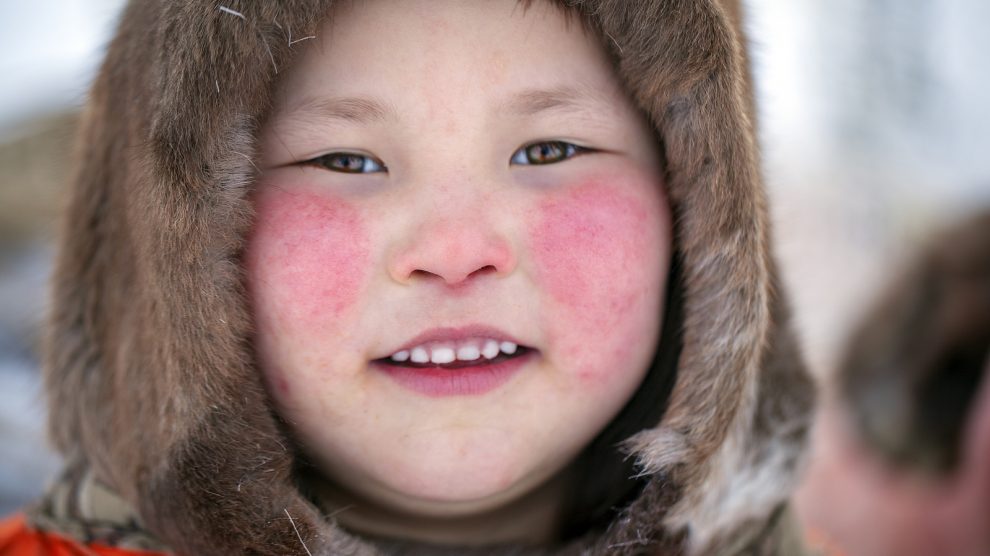Mining companies such as Norilsk Nickel have a key role to play in the sustainable development of the world’s northern territories, and the well-being of the indigenous peoples who live in them.
Sustainable development has in recent years become a key issue for countries with Arctic territories, as they look to find ways to boost opportunities for indigenous peoples, raising their standard of living while preserving traditions, languages, and culture.
- Mining or indigenous rights: Does it have to be one or the other?
- Ukraine set to learn from Poland’s energy transition
- As Serbia prepares to mine lithium, activists warn of high environmental cost
And with the Arctic region home to vast quantities of a wide range of natural resources, not least precious metals, mining companies such as Norilsk Nickel are very much at the forefront of these efforts.
“If we look at census data over the past 10 years, the number of indigenous people in the Arctic is growing,” says Magomedsalam Magomedov, deputy chief of the Executive Office of the President of the Russian Federation.
“It’s an important indicator that shows the policies of the Arctic countries are working. We haven’t lost a single indigenous nation, a single language. It’s a positive trend.”
Economic growth is crucial to maintaining this trend.
“We must all act in a way that provides for the sustainable and harmonious development of the Arctic region. Wherever there is economic growth, wherever there is industry and local manufacturers are supported, populations thrive. We are seeing this across the Arctic,” adds Nikolay Korchunov, ambassador-at-large of the Ministry of Foreign Affairs of the Russian Federation.
More collaboration needed
Collaboration, and the sharing of best practice across the Arctic region, is one of the ways that these positive trends can be boosted.
One of the organisations at the heart of this collaboration is the University of the Arctic (UArctic), an international cooperative network based in the Circumpolar Arctic region, consisting of universities, colleges, and other organisations with an interest in promoting education and research in the Arctic region.
Created in 2001 by the Arctic Council, a high-level intergovernmental forum that addresses issues faced by Arctic governments and the indigenous people of the Arctic, the university’s president, Lars Kullerud, says that one of its biggest successes has been the training of health and education professionals.
But, he adds, what is missing is skills-related training, particularly in traditional industries and mining, which are so important to the Arctic region’s economy.
An exception, he says, is the example being set by Norilsk Nickel, the world’s largest high-grade nickel and palladium producer.
“We are cooperating well with Norilsk Nickel, training specialists. What we need now is for more Arctic countries to facilitate the exchange of experience,” says Kullerud.
“I am convinced that all specialists should study in the Arctic, and they should be broad-based specialists, with experience of communicating with the indigenous peoples of the North. Specialists from Canada and Greenland should exchange knowledge with other nations and companies operating in the north of Russia. I am ready to facilitate such cooperation,” adds Kullerud.
Indigenous rights as a development strategy
Andrey Grachev, Norilsk Nickel’s vice president, says that the firm’s Indigenous Rights Policy is a key part of its development strategy.
“A five-year programme for the development of the indigenous peoples of the North is being implemented, which includes measures to improve the quality of life in the villages and the development of crafts of the indigenous small peoples of the north,” he says.
Norilsk Nickel recently signed a cooperation with the indigenous peoples of the Taimyr Peninsula in the Far North of Russia.
Dozens of members of the communities of the Nenets, Nganasans, Dolgans and Enets will receive financial support for the construction of schools, kindergartens, and other necessary needs.
The organisations that signed the agreement represent more than 90 per cent of the indigenous population of the northern regions of Russia.
Together they have developed a joint action plan with Norilsk Nickel worth two billion rubles (25.9 million US dollars).
The plan includes support for traditional activities, protection of habitats, and financing of housing, medical, infrastructure, tourism, social and cultural projects and is the result of an ethnological expedition that took place in the summer of 2020 in Taimyr.
The expedition’s members conducted over 100 interviews and surveys with representatives of indigenous peoples. Based on their proposals, priority tasks were identified, including the creation of seasonal jobs in areas such as tourism, reindeer husbandry, fishing and hunting.
This content has been produced in collaboration with an Emerging Europe partner organisation.







Add Comment